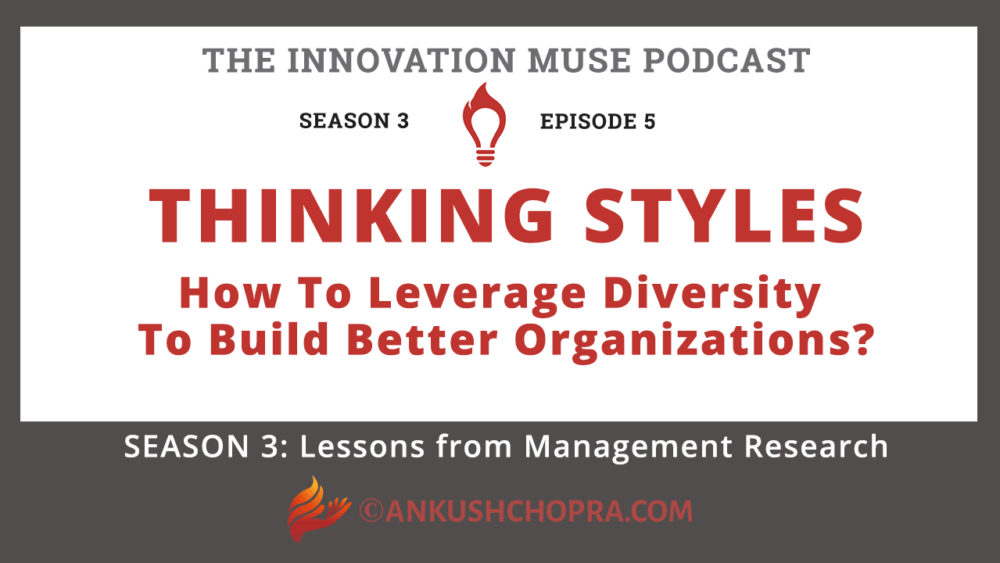We know that people differ in how they think but why is that? You may attribute this difference to difference in experience, knowledge, training, and intelligence. But if you removed these differences, do you think the human mind works the same way across people?
Two Thinking Styles
You may be surprised to know that people differ in fundamental ways in which they receive information and understand the world. These differences exist because of the two different thinking styles in the world.
Research has shown us that there are two types of thinking styles: analytic and holistic thinking style. These thinking styles differ in how and where people pay attention, how they attribute causal relationships, how they learn, and how they predict.
Why Thinking Styles Matter?
Imagine how important this finding is. If you knew that you are a holistic thinker but your colleague or a counterpart on a table is an analytic thinker, you would have different expectations. If you bring these two thinking styles together, you can improve the quality of decisions.
Research on Thinking Styles
In this season of the podcast, we are drawing lessons from management science research and distilling it into actionable steps for busy managers. During this episode, we explore the difference in thinking style of people and what these differences mean.
In this episode, we go through research in psychology and social psychology to understand how people differ in thinking styles. We synthesized many research articles to create this podcast.
Key Take Aways
The key takeaways from this episode are
- How do people with holistic thinking style differ for those with analytic thinking styles?
- Can people change the thinking style?
- Why do people make a different decision due to their dominant thinking style?
- How can you become a better decision maker and a better manager with this knowledge?
- How to use the knowledge in this episode to become a better manager and business leader?
- Some actionable steps you can take to use the knowledge of different thinking styles.
Selected Citations
Abel, T. M., & Hsu, F. L. K. (1949). Some Aspects of Personality of Chinese as Revealed by the Rorschach Test. Rorschach Research Exchange and Journal of …, 13(3), 285–301. http://doi.org/10.1080/10683402.1949.10381466
Masuda, T., & Nisbett, R. E. (2010). Culture and Change Blindness. Cognitive Science, 30(2), 381–399. http://doi.org/10.1207/s15516709cog0000_63
Nisbett, R. E., & Valins, S. (1971). Perceiving the Causes of One’s Own Behavior
Nisbett, R. (2010). The Geography of Thought. Simon and Schuster.
Nisbett, R. E., & Masuda, T. (2011). Culture and point of view. Proceedings of the National Academy of Sciences, 100(19), 11163–11170. http://doi.org/10.1073/pnas.1934527100
Valins.Peng, K., & Nisbett, R. E. (2000). Dialectical responses to questions about dialectical thinking. American Psychologist, 55(9), 1067–1068. http://doi.org/10.1037//0003-066X.55.9.1067
How to Listen?
Interested in listening to this episode? You can find this episode as well as tons of equally insightful lessons on business management in my flagship program The Business Leadership Academy. It is dedicated to helping you become a highly effective business leaders. Check it out now.





Please note: I reserve the right to delete comments that are offensive, or off-topic. If in doubt, read my Comments Policy.